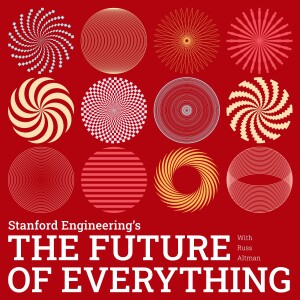
In cancer detection, could a blood test replace a biopsy?
Once, when a cancer was suspected, the next move often involved a biopsy – literally cutting out human tissue to ascertain malignancy. But that highly invasive model is now being overshadowed by the promise of “liquid biopsies.” In these non-invasive approaches, blood, spinal fluid and other bodily liquids are drawn and tested for the presence of cancer cells, bits of DNA or other molecules that are the unmistakable markers of serious disease. Often, such non-invasive biopsies can be done before clinical symptoms appear.
Ash Alizadeh is an authority on the rapidly evolving technologies and techniques of oncology. He says that information is reshaping not only how we detect cancer but also how we treat it. The data we gather about any given cancer is being combined with knowledge about the patients themselves, leading to highly personalized approaches that did not exist just a few years ago. No two cancers, nor two patients, are exactly the same, Alizadeh says. Cancer cells grow differently in each patient and cancer treatments should be personalized accordingly.
Join host Russ Altman and Ash Alizadeh as they explore the exciting new age of cancer diagnosis and treatment on this episode of The Future of Everything. You can listen to The Future of Everything on Sirius XM Insight Channel 121, iTunes, Google Play, SoundCloud, Spotify, Stitcher or via Stanford Engineering Magazine.
Connect With Us:
Episode Transcripts >>> The Future of Everything Website
Connect with Russ >>> Threads or Twitter/X
Connect with School of Engineering >>> Twitter/X
view more
More Episodes
Sanjay Basu: The power of healthy eating
 2020-04-13
2020-04-13
 2020-04-13
2020-04-13
William Chueh: How to build a better battery
 2020-04-10
2020-04-10
 2020-04-10
2020-04-10
Fiorenza Micheli: The race to save the ocean
 2020-03-17
2020-03-17
 2020-03-17
2020-03-17
012345678910111213141516171819
Create your
podcast in
minutes
- Full-featured podcast site
- Unlimited storage and bandwidth
- Comprehensive podcast stats
- Distribute to Apple Podcasts, Spotify, and more
- Make money with your podcast
It is Free
- Privacy Policy
- Cookie Policy
- Terms of Use
- Consent Preferences
- Copyright © 2015-2024 Podbean.com





